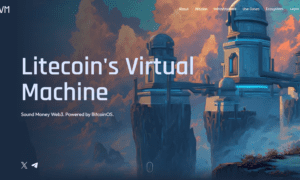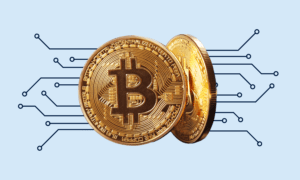Algorand is a Boston-based open-source software company working towards building a borderless economy. Backed by a strong team that is led by Turing award winner Silvio Micali, Algorand recently attracted a lot of institution interest since it leverages solid engineering and cryptographic principles. Last month, we announced the launch of our BetaNet. The SDK of the Betanet will allow developers to create the following:
- Algorand smart contracts.
- Fungible layer-1 tokens.
- Atomic Transfers.
Algorand Smart Contracts
Algorand Smart Contracts at Layer 1 or ASCs are one of the key innovations that we are incredibly proud of. Activating smart contracts will allow developers to build their applications on top of our platform. The types of applications that ASCs can support are:
- Post-and-sale transactions: Automates your sales so that anyone can purchase an item from you without your direct involvement.
- Securitized loans: Make a loan that is secured by the collateral of the borrower. Failure to make payments results in the change of ownership of the collateral.
- Crowdfunding: Preset the funding target and automatically collect funds for a project without getting directly involved.
- Accredited-Only Transactions: Create a contract that will allow only qualified investors to execute a specific type of transaction. The best part? You can do this without having to monitor each transaction personally..
- Multi Multi-Sig Wallets: Take your multi-sig wallets to a whole new level by creating multi multi-sig wallets. While a simple multi-sig wallet can be operated by an entire group, a multi multi-sig wallet can be operated by multiple groups.
Fungible layer-1 tokens
There are several blockchain platforms out there that allow you to create and use tokens or assets. However, this generally requires additional code or for the asset to be moved to Layer-2. Algorand has a feature called “Algorand Standard Assets” (ASA) feature that will allow anyone to create a Layer-1 token or asset on our network. The property of these assets are as follows:
- The newly created tokens inherit all the same features, security, transaction finality, and performance of our primary native token – Algo.
- The standard assets are configurable and can be allowed to represent virtually anything.
ASAs are also incredibly configurable that will allow users to represent different assets on the blockchain. Some examples of these assets are:
- Fungible assets like loyalty points, new currencies, and stable coins.
- Non-Fungible assets like real estate, collectibles or in-game assets.
Keep in mind that developers can configure tokens to support regulatory operations like freezing and revoking assets. This allows for the creation of regulated assets like securities.
Atomic Transfers
The final feature in the SDK that we are excited about is “Atomic Transfers.” Atomic Transfers or Swaps will enable users to directly trade with one another wallet-to-wallet. The features of our layer-1 atomic transfers are:
- Users can group together multiple transactions into one operation. If any of the transactions fail for any reason, none of the transactions are processed.
- Atomic Transfers can also be used in conjunction with any asset on the blockchain (ASA or Algo).
- They all have the security benefits of being layer-1 features.
Conclusion – Welcoming developers with open arms
Ever since the launch of the Algorand network, our ecosystem has experienced impressive growth. Our developer community continues to expand across the globe, with participation in thousands of forums and presence at dozens of conferences and hackathons. To encourage even further developer activity, we have instituted the “Developer Awards Program.”
We have designed the program to support innovation that will help Algorand grow. The Foundation is interested in innovation in areas such as applications, utilities, monitoring, tooling, deployment, and libraries. Having said that, we are open to any other areas of key innovation around the Algorand blockchain. The main emphasis will be given to creativity, utility, and code conciseness. This first awards program will run for six months (or until the awards pool is exhausted). The supported proposals will also be listed on our website as recognition.
The award program, along with the SDK features, will help encourage more developer activity on our platform.



































